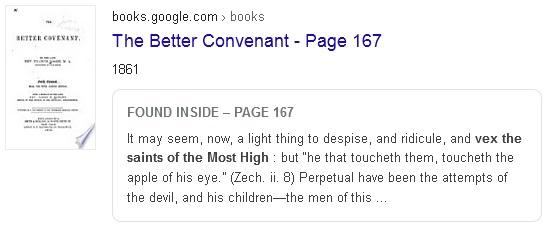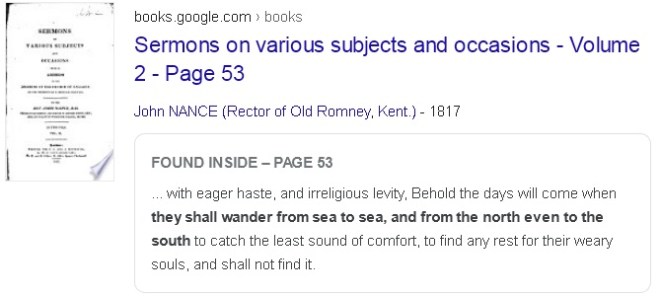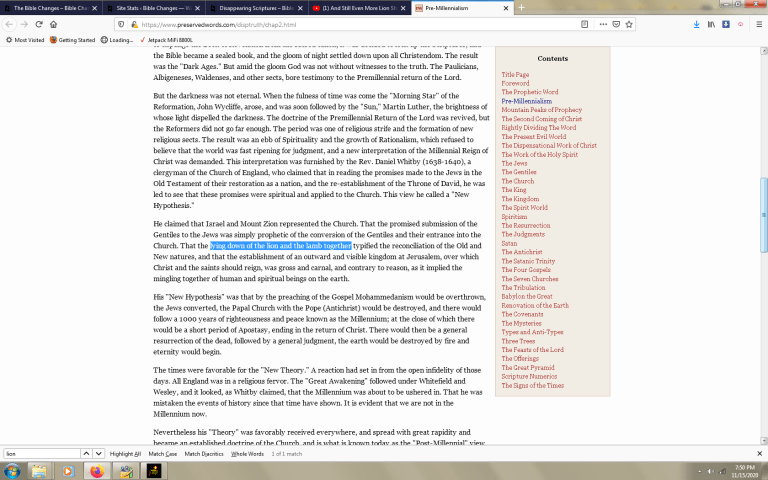No, no bother--I had already read your exchange. Unfortunately, I would agree not with you, but with the brother. I don't know Parson, but he seems to be a friendly sort, so I wouldn't take what he says as an insult, though I could be wrong. I give others a chance to rib me a bit before I get too angry. Whether we're right or wrong, if we're simply trying to share our honest sentiments, we deserve respect.
I think I know where you get your notion from, that God and the Word are synonymous. And it's certainly true. I just wouldn't characterize it the way you do. And here's why.
When the Scriptures say that the Word with with God, and the Word was God, it is talking specifically about Jesus' preincarnate existence as God. Well, what was Jesus before he became a man? Was he just words on a page, or both words on a page, and God's regular messages sent out into the universe?
I believe it's simpler than this. The Word is the personification of who God is in the sense of how He chooses to express Himself, whether as the Son of Man or as an angel. The Word is always personal, because it expresses a Being. So this Word is unique and not a word on a page. To confuse Deity with material reality is to confuse the Creator with the Creation. But we do know that in a unique sense God did identify with His creation when He revealed Himself as a man. So God can be seen to be a Man, as long as we know He remains the infinite God, as well.
That's why I don't think God can be said to be the Bible. He cannot be the Bible and God simultaneously. If He is the Bible, He ceases to be God. But when He became the Son He revealed Himself to be both Father and Son, in relationship between the infinite God and His revelation as a finite man.
There is a sense in which you might be able to say that God and the *truth* of the Bible are synonymous. The knowledge of God *is,* I think, God. Jesus said, "I am the truth." That is, Jesus was saying that he was the incarnation of the knowledge of God.
But this gets pretty deep for me. I'm just trying to be honest, and suggest that some aspects of what you're saying are true, whereas I don't think it's good to say that God is the Bible. It would confuse people into thinking God is an inanimate object. ;)
First thanks for your reply. Forgive me again, but I would like to say that the discussions with Parson was not about "Word of GOD" specifically. Actually, they were about KJV and my criterion using several biblical versions in my interpretation of Scriptures, as follow:
QUOTE: Yes, King James, but if the translation doesn’t satisfy I compare it with texts from other versions that are available, for example, CJB, NIV, NKJV, to get better understanding of the text, and I can discern if text is in tune or in accordance with the intention of the Spirit that inspired it.
In other words, I know what the Spirit means, and I check whether the text's vocabulary matches the Spirit's intention. In essence, the words may be different, but the meaning has to be that which the Spirit has inspired. The Word is GOD, letter and Spirit. Based in John 1:v.1. GOD is Spirit, as JESUS said : John 4:v.24) QUOTE
Think that Parson did not like of my explanation above so he simply said I mix a bowl of sweet potatoes with Castor Oil. Strange, no? The available versions of the Word of God do not deserve to be treated as a source of things of this nature, except for Cain in his offering to God in the beginning.
I think that the Word of GOD deserved not be taken as source of sweet potatoes and Castor oil. What I know is that the Old Testament and New Testament are two olive tree, and sources of olive oil for the two candlesticks - two Churches - standing before the God of the earth, according Revelation 11:v.3. What you think?
God bless




